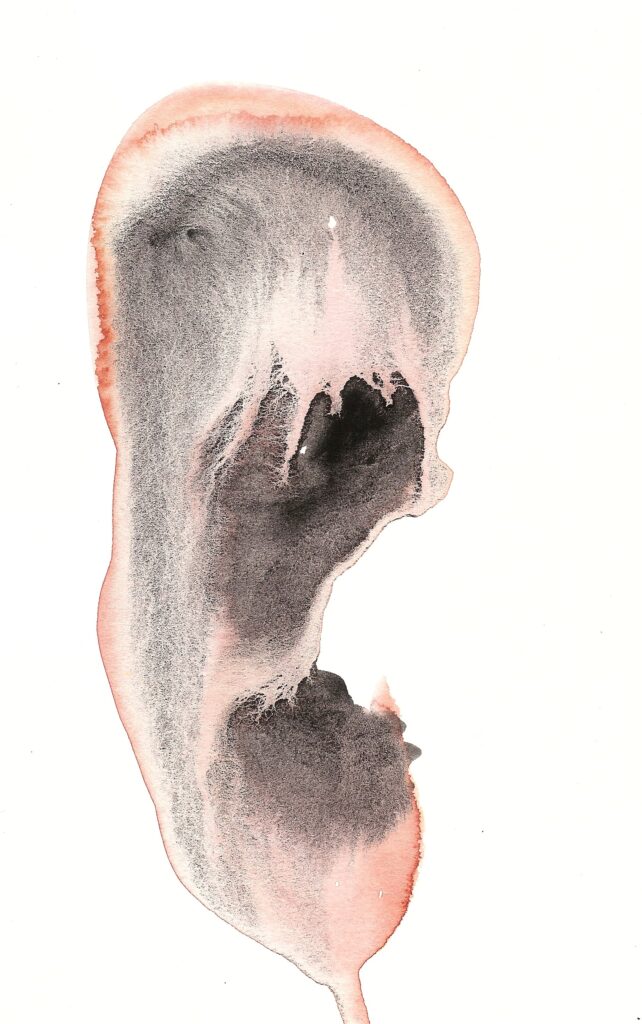When I was in middle school algebra, I sat next to a row of five computers that the school had acquired as part of what was clearly a push on the part of the school system to get us to join the “digital age.” These ancient Apple computers were constantly turned on, even though they were never used. Most of the teachers basically had no idea how to use them. I was never very interested in algebra, and I often found my gaze wandering to the screen savers, which displayed various geometrical sequences perpetually unfolding into various shapes and colors. Had I been told that these sequences were mathematical visualizations, I might have become more interested in mathematics. But as our teacher droned on about the FOIL method, which seemed to have no logical connection to anything in the tangible world, I gazed into a tunnel of triangles expanding infinitely toward what appeared to be a kind of event horizon. This exact screen saver came to mind as I watched Apple TV’s newest series, Calls. Calls isn’t really a television show in the traditional sense—it’s more like a podcast or radio show, with minimalistic visuals that recall old Apple computer screensavers. It feels a little like the War of the Worlds radio broadcast in 1938 that proved so realistic its listeners actually believed the world was being invaded by aliens. Calls is at once alien and familiar in that way.
It therefore takes a little acclimation. I was skeptical through most of the first episode, not sure about the minimalistic visuals, and not entirely sold on the plot. The panic in the disembodied voices sometimes skewed towards melodrama. It doesn’t help that the opening episode puts us square in the middle of a love triangle, only adding to the “soap opera” effect. But, my skepticism soon dissolved into interest, then rapt attention, followed by that kind of eerie uncanny feeling you get when you’re so scared tears come to your eyes. The visuals unfold elegantly, orienting the listener in the story, while not giving away too much.
By the end of the first episode, I was hooked. Calls is horror at its purest and at its best. I’m a fan of horror movies that choose not to reveal their monsters. After all, the imagination is capable of producing the most horrifying things on its own, and it only needs a little priming to get the gears working. The best horror movies, like The Ring, and Dark Skies, don’t reveal their monsters (at least until the end), and are better for it. It’s always the anticipation of the terror, the imagined dread, that is more powerful than the awful revealed. And this is why Calls is so good. We hear the characters encountering something unspeakable, inexplicable, and terrifying. The world is changing around them, and the fact that we cannot see those changes firsthand is chilling.
Calls works because it melds the mysterious with the almost-cliché. The eerie space formed between these two poles, creates a fascinating tension, that is at once refreshing and also terrifying. We encounter characters at inflection points in their lives. A man tries to tell his long-distance girlfriend he’s having an affair, but then terrible and strange things begin to happen, including people ending up in beds where they absolutely don’t belong. A man drives through the desert to get away from his girlfriend who just told him she’s pregnant, and time begins to warp. A hypochondriacal woman and her jealous sister have a phone conversation that changes them forever. There’s a little bit of Twilight Zone and a little bit of soap opera in each of these stories, but the personal is woven so intricately into the warped universe in which these characters reside that I couldn’t turn away.
Each episode in itself could be a study in how to write a short story. We encounter our characters at moments where their lives are about to change, or are changing, irrevocably.

Ultimately, each episode is a study on the theme of regret.
I believe we all have moments in our lives we regret, things in our lives we wish we could go back and change. The characters in Calls find themselves empowered to make a different decision. They are able to call forth a different outcome, even as their stories unfold. The uncannyness of the narrative in Calls is the stange lurch we feel as we watch one reality play out even as the alternative presents itself.
It’s a seductive premise—this idea of being able to tell your past self what you know now, and asking her to change. Reality doesn’t work that way, of course. There’s regret and then there’s living in the past. There’s no going back. There is only life changed as a result.
Transformative regret is the real story beneath the story in Calls. The metaphor of the quantum change exhibited in Calls is really a metaphor about the way regret transforms lives, the world, and the universe. The stories unfold like regret’s repetitive force of what if, called forth over and over.
Calls is a commentary on the things we can and cannot change, and it is ultimately it is an allegory about the destructive force of regret–because regret literally warps time, literally entraps us in a past we constantly try to revise. The lesson of Calls is that we can never revise the past, and any attempt to do so only leads to self-destruction, and often to the destruction of others around us. We are forced to come face to face with the brute fact of time itself, and the brute fact that we cannot change the past, lest we destroy ourselves in trying to relive and revise it.
About the Writer
Janice Greenwood is a writer, surfer, and poet. She holds an M.F.A. in poetry and creative writing from Columbia University.
